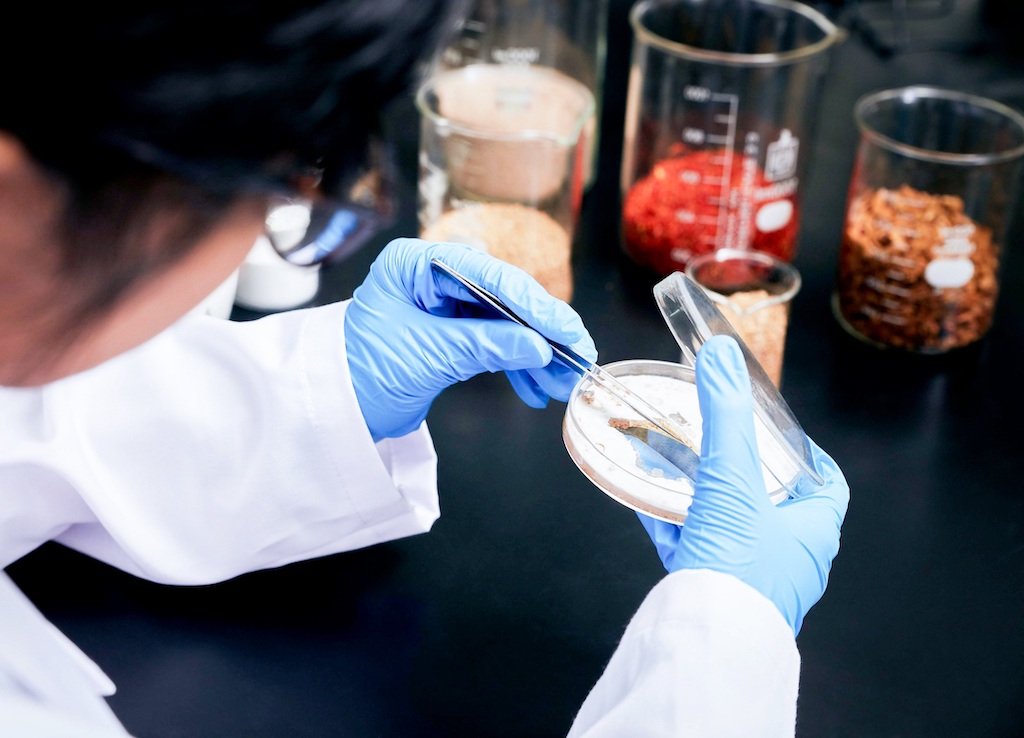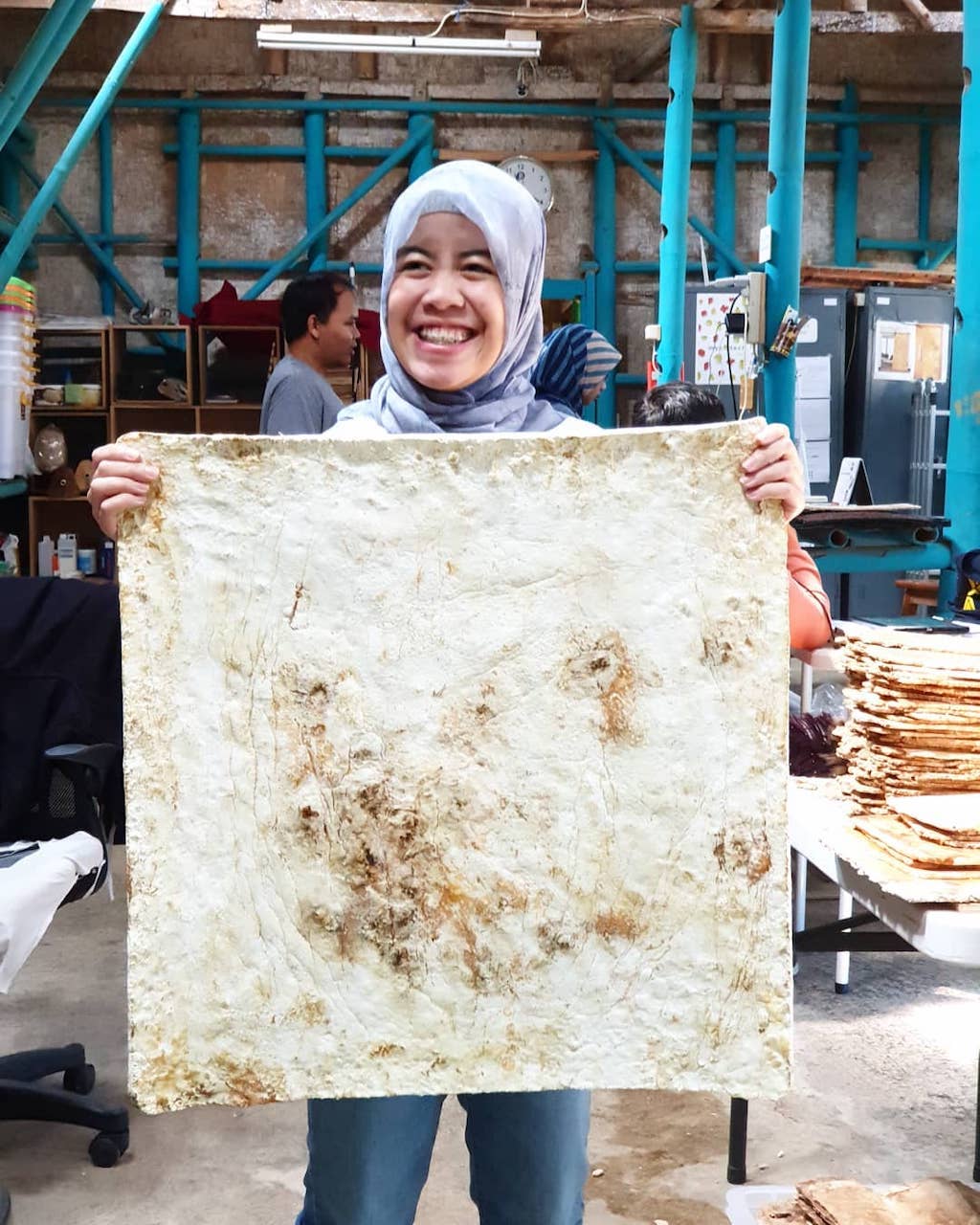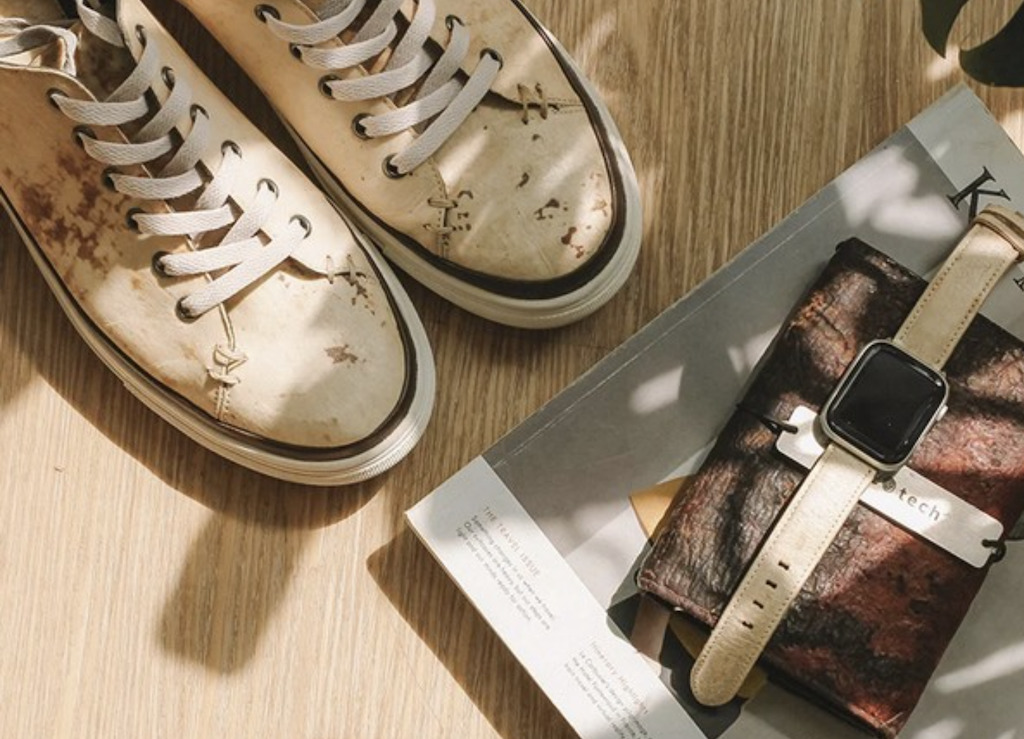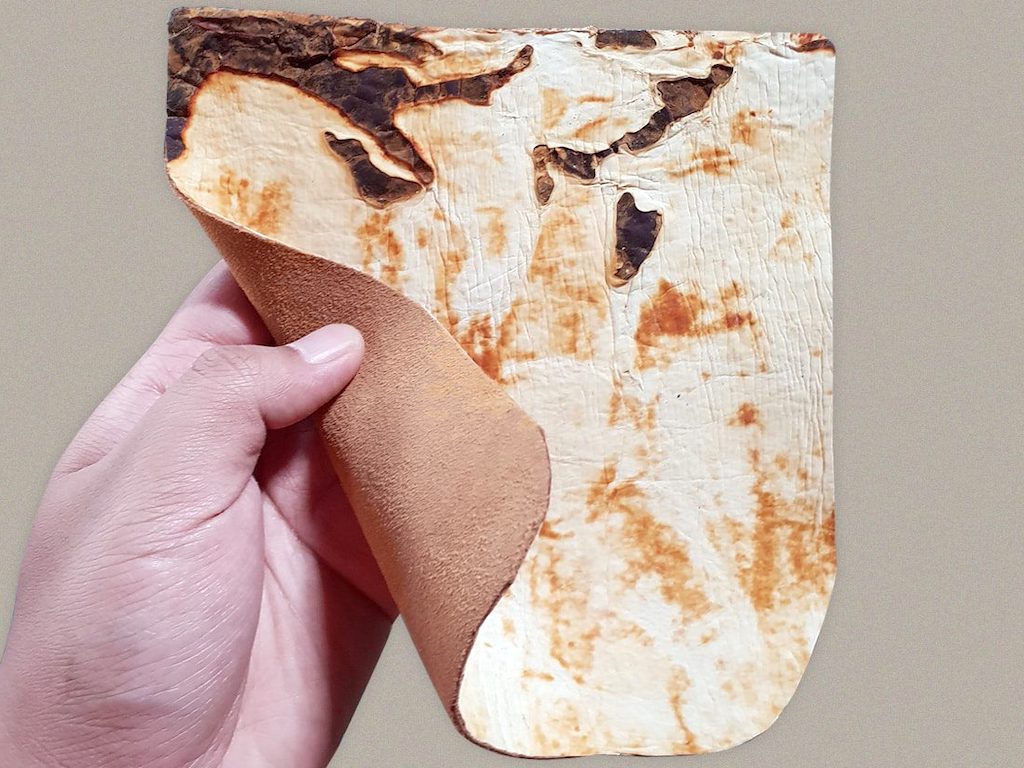3 Mins Read
Head over the Bandung, the city set in the middle of volcanoes and tea plantations in Indonesia, and you’ll find a startup working on turning waste into sustainable animal-free leather. Called Mycotech Lab, the company was inspired by tempeh, the traditional Indonesian food made from fermented soybeans, and came up with its own technology to grow its ethical and carbon-friendly mycelium-based materials.
Many are now shunning traditional leather made from cowhide, which is a high-emissions and resource-intensive material, not to mention unethical. But there aren’t yet many alternatives to leather that really perform in terms of both sustainability, with petroleum-based plastic alternatives still remaining the lesser of two evils, and functionality, since many animal-free fabrics lack the strength, durability and hand feel that producers and consumers like about real leather.
While there’s a growing cohort of startups trying to change that with their novel material innovations, many of them like MycoWorks, Bolt Threads, Desserto and Fruitleather are based in Europe or the U.S., but there’s Mycotech Lab right here in Asia whose founding story is deeply rooted in its local culture.

It all started when the team thought about the process of making tempeh, the traditional Indonesian protein made from fermenting soybeans with fungi, which has now become a huge hit in the West amidst the vegan surge, but has existed for centuries in Javanese cuisine and has featured in many delicacies across Asia for years.
Mycotech Lab decided to experiment with the fermentation process used to make tempeh to make a new fabric out of the complex root structure of mushrooms, otherwise known as mycelium. It was a lengthy trial-and-error process that kicked off in 2016, but “finally, we found one mushroom with a mycelium that can be made into binding material,” said Erlambang Ajidarma, head of research at the startup, in conversation with Reuters.

The final product, developed with fungus grown on sawdust that then gets scraped off and dried and cut into different sizes, is Mylea, a fibrous but tough material that acts just like the real thing. It’s waterproof, pliable, durable, and most importantly, is far more sustainable than existing plastic-based synthetic leathers or carbon-intensive real leather made from hide.
Mycotech also uses natural dye extracted from roots, leaves and food waste in the region to colour their leather alternative, which again is a process that is far less polluting than traditional tanning processes used for real cowhide that leaves behind solid and liquid waste that contains chromium and other hazardous compounds.
Since its inception, Mycotech has managed to grow its client base with no marketing budget because the demand for sustainable alternatives has grown alongside awareness of the damaging effects of animal-based materials in the fashion industry.

One of their recent partnerships includes local sneaker brand Bro.do, who now plans to expand into other markets like Japan in response to popular demand. They’ve made bags, watch straps and accessories out of Mylea too.
In a recent interview with e27, the startup’s co-founder and CEO Adi Reza Nugroho revealed that clients have been “happy with the result” of their mycelium leather, and have attracted enough order volumes to stay busy until 2027.
All images courtesy of Mycotech Lab.




